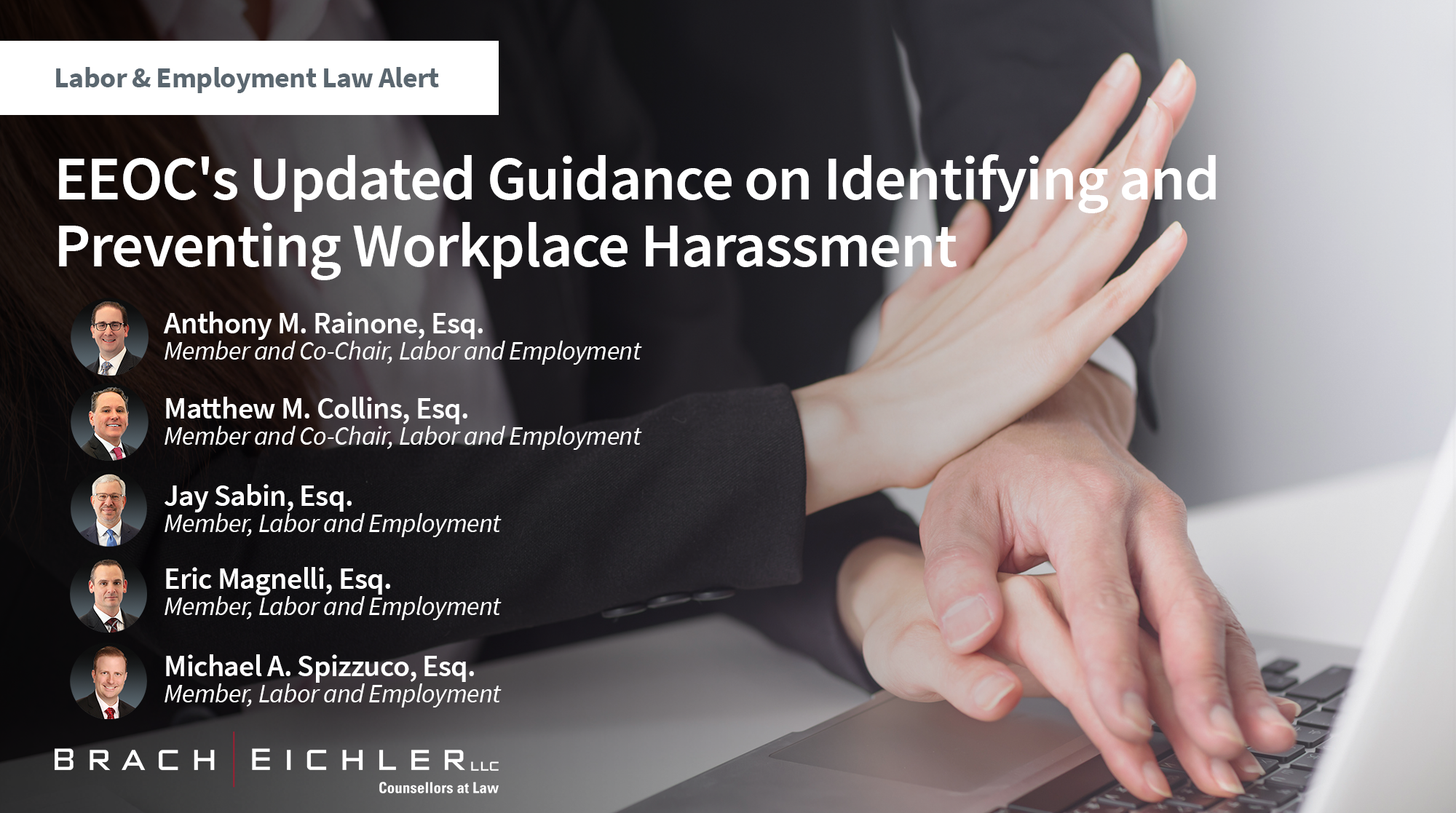EEOC’s Updated Guidance on Identifying and Preventing Workplace Harassment

June 7, 2024
For the first time in nearly twenty five years, the U.S. Equal Employment Opportunity Commission (“EEOC”), on April 29, 2024, has updated its published guidance about identifying and preventing workplace harassment. EEOC published guidance, while not the force of regulation, influences EEO agencies and courts interpreting anti-discrimination laws and helps guide employers when drafting and implementing policies, training employees and supervisors, and investigating or litigating claims of workplace harassment and discrimination.

Follow Us on LinkedIn
Stay updated with our latest news and insights.
Some of the EEOC’s most prominent changes address identifying harassing conduct based on a person’s sex, including harassment based on sexual orientation, gender identity and gender expression. Any of the following conduct may constitute illegal harassment, per the Guidance:
- Disclosing an individual’s sexual orientation or gender identity without permission (“outing”);
- Harassing conduct because an individual does not present in a manner that would stereotypically be associated with their sex;
- Repeated and intentional use of a name or pronoun that is inconsistent with an individual’s known gender identity (“misgendering”);
- Denial of access to a bathroom or other sex-segregated facility that is inconsistent with an individual’s gender identity;
- Requiring or prohibiting an individual from wearing particular clothing that is inconsistent with the individual’s gender identity;
- Epithets relating to sexual orientation or gender identity;
- Physical assault due to sexual orientation or gender identity; and
- Questioning an individual about their anatomy or sexual relationships.
The Guidance addresses harassment based on the perception that an individual is a member of a protected class (even if the perception is incorrect) and “associational harassment,” which refers to harassment because an individual associates with a member of a protected class. According to the Guidance, harassment can also be based on social and cultural stereotypes regarding how members of a protected class act, appear, or behave, such as stereotypes about family responsibilities, gender roles, expression of sexual orientation or gender identity or being a survivor of gender-based violence.
The Guidance also addresses a host of other “hot button” issues, such as religious harassment in the workplace; the difference between sex discrimination and sexual harassment; employer liability for the acts of employees; the importance of a prompt and adequate investigation; and the duties of joint employers when harassment occurs.
Publication of the Guidance serves as an important reminder that employers can mitigate risk by negotiating indemnification provisions with joint employers and by regularly providing robust training. (In some jurisdictions, such as New York, regular worker training is required by law.)
For more information on the EEOC’s guidance and how it can impact your business, or to discuss ways to mitigate EEO risk, please contact:
Anthony M. Rainone, Esq., Member and Co-Chair, Labor and Employment Practice, at arainone@bracheichler.com or 973.364.8372
Matthew M. Collins, Esq., Member and Co-Chair, Labor and Employment Practice, at mcollins@bracheichler.com or 973.403.3151
Eric Magnelli, Esq., Member, Labor and Employment Practice, at emagnelli@bracheichler.com or 973.403.3110
Jay Sabin, Esq., Member, Labor and Employment Practice, at jsabin@bracheichler.com or 917.596.8987
Michael A. Spizzuco, Esq., Member, Labor and Employment Practice, at mspizzuco@bracheichler.com or 973.364.8342
*This alert is intended for informational and discussion purposes only. The information contained in this alert is not intended to provide advice, and does not constitute legal advice or establish the attorney/client relationship by way of any information contained herein. Brach Eichler LLC does not guarantee the accuracy, completeness, usefulness or adequacy of any information contained herein. Readers are advised to consult with a qualified attorney concerning the specifics of a particular situation.
Related Practices: Labor and Employment, Litigation
Related Attorney: Anthony M. Rainone, Matthew M. Collins, Jay Sabin, Eric Magnelli, Michael A. Spizzuco, Jr.

















